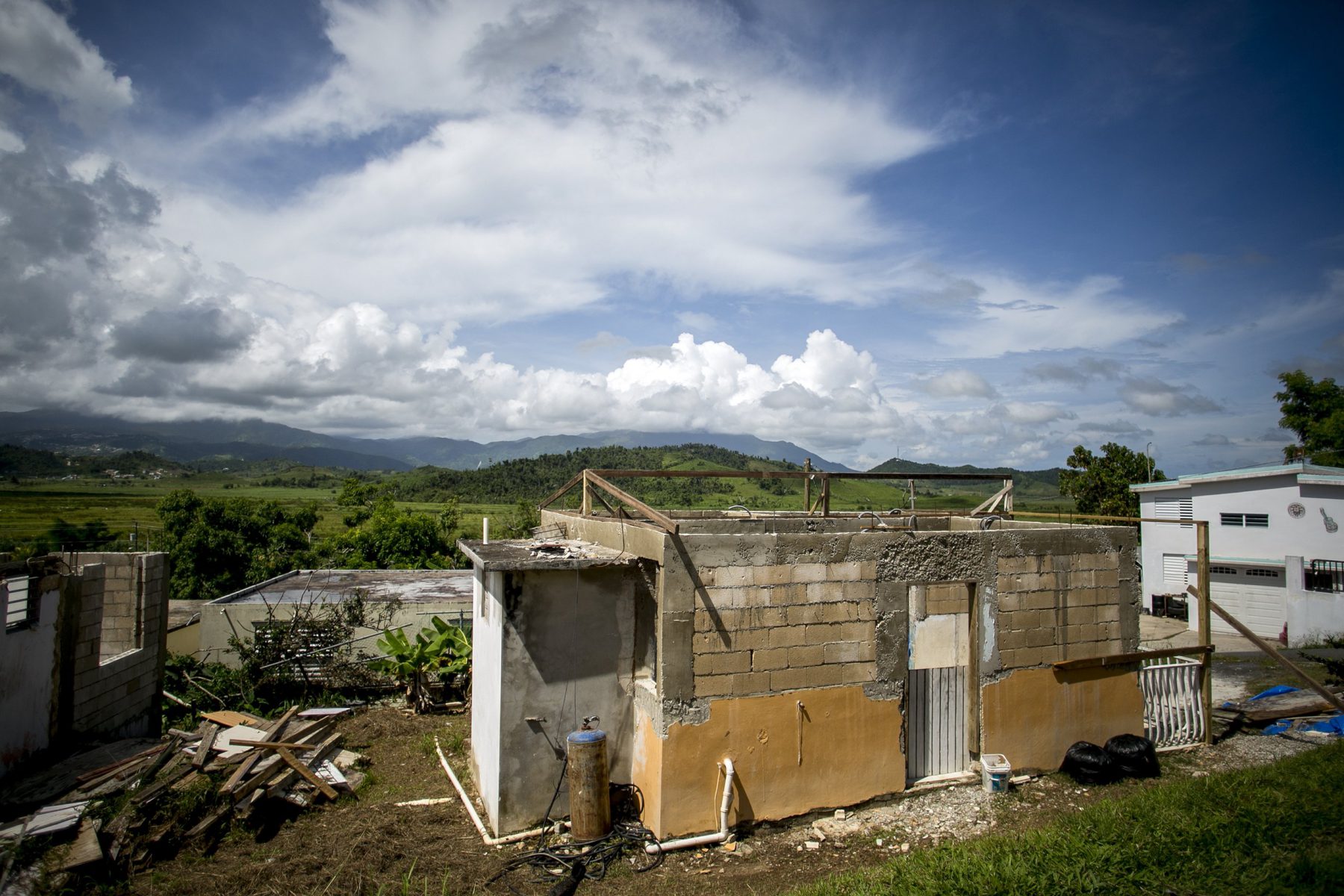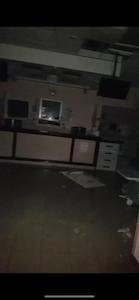
NBCU Academy’s “Head of the Class” highlights original reporting and video from student journalists from our Academic Partners. Students, teachers and mentors from our Academic Partners are encouraged to send stories to: [email protected]
After Hurricane María passed five years ago this month, what echoed through my home’s walls was the sound of the news as my family gathered around my grandmother’s radio in the living room.
The power was out across the island, the water was gone and the phone towers were down. We were left with little to no communication, worried and restless. After finding working batteries, our only source of information came from that old radio.
Centro Médico in San Juan,
the day after Hurricane María
passed (Yamilet Aponte Claudio)
It became a routine, listening to the radio, figuring out what was going on and if our other family members were OK. A lot of areas were not safe to drive around or pass through, due to flooding, fallen trees and a multitude of other debris. The journalists who hosted the news programs made it their mission to keep the citizens informed as the death toll and the missing people count rose.
But it wasn’t until President Donald Trump arrived in Guaynabo and deduced that the island was in great shape, that much of the rest of the world took notice of what was happening in Puerto Rico. He hinted that Puerto Ricans were “not in a state of emergency,” despite the fact that we had no power and limited gas and supplies. He visited a church in the area and began handing out food and essentials, throwing paper towels at the crowd. The event went viral, ridiculing my island’s situation. It was up to journalists from around the island, and the United States, to report the truth: Puerto Rico was indeed in crisis.
One journalist who was essential to us understanding what was happening was “adopted Puerto Rican” David Begnaud, a New Yorker who experienced Hurricane Maria in Puerto Rico. He reported with sensitivity. Even now, he stands with us, continuing to report on our situation. I admire his professionalism and consideration for my island. Even watching him in 2017, I knew his work was calling me. I hope to achieve what he has become: a voice for the people, a voice for my people, my home.
As I think back to those days of uncertainty and frustration, my mom’s condition comes to mind, may she rest in peace. In 2017, my mom was taking treatment in a dialysis center three times a week.
The hurricane destroyed the center, and she could not receive treatment for a week and half. While some dialysis patients and cancer patients were transferred to the U.S. mainland with an aircraft paid by singer Pitbull and billionaire Mark Cuban, that was not my mom’s case.

My grandpa, who resided in Florida, tried booking her a plane ticket, but the prices had spiked and my mom resisted leaving. As she waited and considered fleeing for treatment, her dialysis center was able to relocate her and other patients.
But other problems remained. Medical conditions that were treated from home required refrigerated substances, and because our refrigerator had no power, my family became anxious to find ice for insulin for my mom and grandma. The limitations for groceries, gas and any essentials became a struggle for many people, and lines could last hours. Many in the community depended on nonprofit organizations, which provided food and shelter to those in need.
People lost their homes, people died, people fled. People also met their neighbors and we Puerto Ricans became more human than ever. We united as a family to help survive this disaster.
Journalists were the key to communication and our understanding. Reporters became family and friends. To this day, many people are thankful for their honest work and dedication to keeping the island informed in a moment of uncertainty. They also became my inspiration. I hope to stand next to them someday.



